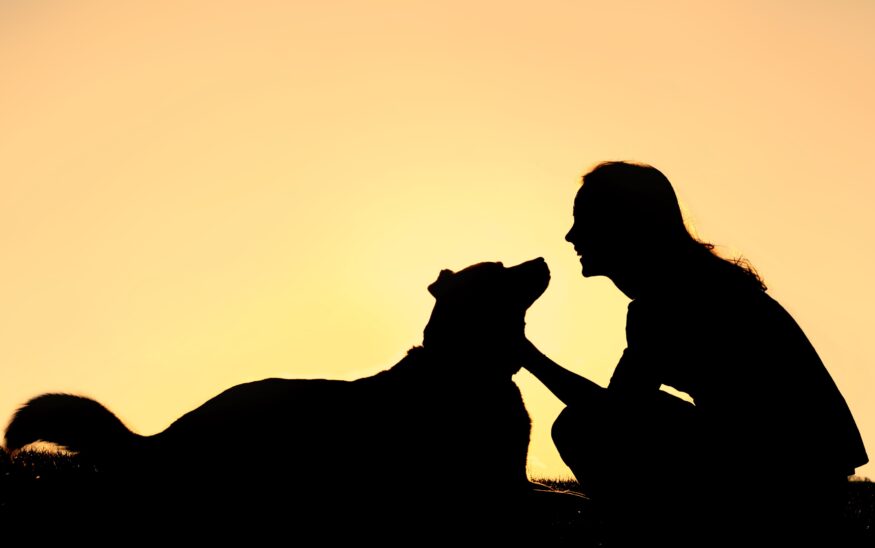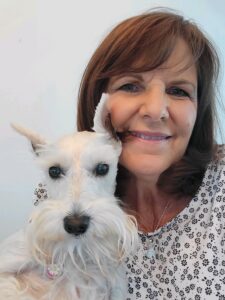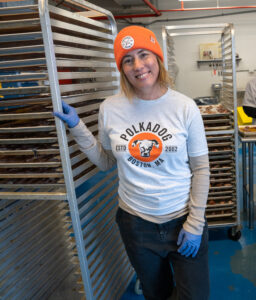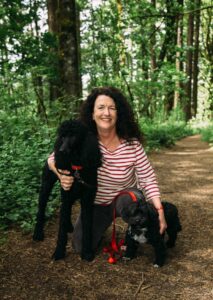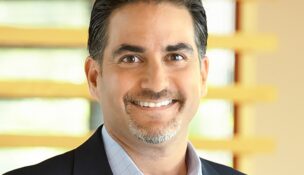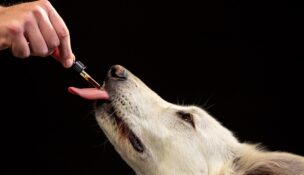At The Helm: Women Leaders Overcome Obstacles to Drive the Pet Industry
Glenn Polyn //May 15, 2023//
Successful women leaders, both in and out of the pet industry, are typically described as being highly determined, wildly passionate and have the enthusiasm and strength to persevere under any circumstances. While women-owned businesses are in the minority, their numbers have increased significantly in recent years. In fact, they are catching up to male-owned businesses and, according to the U.S. Census Bureau, now make up 42 percent of all companies in America.
The pet industry is teeming with women who have made a notable impact on the field in which they work while also inspiring a new generation of women to join the pet community. However, it hasn’t been easy for them
The hurdles faced by women leaders are vast and tend to be different from those experienced by their male counterparts. Women-owned businesses have their ups and downs like any other business, but due to the lack of resources and opportunities, they often have a steeper hill to climb.
A support network is essential for entrepreneurial success, so it’s no surprise that 48 percent of female founders report that a lack of available advisors and mentors limits their professional growth, according to Inc.
To shed light on some of these disparities, Pet Age asked women business owners in the pet industry about the key challenges that women leaders face and how to overcome them.
NZ Natural Pet Food
Passionate about their own health and well-being, friends and business partners Jacqueline Taylor and Amber Cordero came up with the concept for their natural freeze-dried pet food business, NZ Natural Pet Food, in 2016.
“When Jacqueline and I initially started the New Zealand Natural Pet Food Company seven years ago, the pet industry felt like a real boys club,” Cordero reminisced. “When we attended trade shows throughout the years, people often thought we were the promo girls, not the owners/co-founders, as we did not fit the stereotype for a ‘pet food business owner.’ While they were surprised to find out that we were the owners, it also made us unique. Most customers who are buying food for their pets are women, so for us it was important to develop products that related to our target customer, which was really Jacqueline and I as pet parents.
“It is exciting to see how the industry has evolved over the years,” Cordero continued. “And while it is still a male-dominated industry, it is great to see the number of females that are involved — either as owners, buyers or retailers… even one of the blending factories we work with is owned by a woman. Being a woman has never hindered us; if we get told no, we find the right person to say yes. We have the attitude that no one is going to stop us.”
Jennifer Neufeld
Distinctly Himalayan
Jennifer Neufeld’s career started at an advertising agency in Moscow, Russia, in the early 1990s, which she describes as a “crazy time.”
“I found myself as just one of a handful of American women to have started their own business, a strategic communications firm, in Moscow during these years,” she explained. “Shortly after moving back to the U.S. in 2008, now with family in tow, my husband [Jamyang] and I decided to leverage our business experience, Jamyang’s as a textile manufacturer in Nepal, to introduce our concept of scalable fair trade sustainable products and saw a gap for such products in the pet industry, specifically. And so, Dharma Dog Karma Cat was born. While he handles our manufacturing, I run our operations here in the U.S.”
Despite being co-owner of a successful business, Neufeld discovered early on that women need to take it to another level in order to establish themselves more definitively.
“I will admit to being somewhat surprised on my return here to find being a woman entrepreneur more challenging that I had found it abroad,” she recalled. “It wasn’t related to the business, but one incident stands out in my mind. I overheard a group of men at some event talking about offshore banking. Well, having had a PR firm in Russia in the 1990s, this is a topic I know quite a bit about, and amongst my friends are some of the leading journalists covering this particular beat. I joined the conversation with a relevant point, thinking they might be interested as it was clear from their conversation that none of the men had any experience or knowledge of the subject. My comment was followed with a deafening silence, and then in unison, as if they couldn’t quite figure out where the sounds had come from, the men turned back to their conversation and continued, as if I wasn’t even there. I think the reason that this insignificant moment is so seared in my memory is that it was the first time in many years of running my own businesses, that I had been dismissed in such a way. It was humiliating, and made me withdraw from that conversation, and more disturbingly, kept me from joining others in the future.”
However, she has not encountered any similar experience in the pet industry.
“In my experience, the pet industry is a particularly compassionate and open-minded one,” she noted. “Maybe this is because we spend a lot of time listening to animals and trying to figure out what they think, but there is an inherent humaneness in what we do, which makes it welcoming for a diverse group of entrepreneurs. There have been many people, women and men, in this industry who I would consider instrumental to the success of our business. Women who run distributors and retail organizations, who encourage with dollars and free flowing advise. Men who purchase for retail chains who listen intentionally and look to build partnerships with brands they believe have a sense of purpose. We are all united in loving animals and wanting to make this a better world for them. We’re one of the most profitable industries in the US, and we’re doing it in a way that overcomes the trivialities of gender and race stereotypes. Perhaps other industries could learn a thing of two from us?”
Kelly Ison
Einstein Pets
Kelly Ison has been CEO of Einstein Pets since 2012, having started with her husband, Robert. Both had a background in the corporate life, but after adopting their dog, Abbey, they wanted to do something better for her. Ison, who started making her own treats with chia seeds for Abbey, describes launching Einstein Pets as something not for the faint of heart.
“I know so many entrepreneurs that have that moment — an experience, an epiphany, getting fired, getting desperate, getting fed up; or at least a cool drop out story — but mine is none of that prior to founding Einstein Pets,” Ison recalled. “Having 25+ years of corporate global experience, I was a 40-something woman, and I knew I was meant for something more. There had just been another major recall on dog treats, and I had a desire to do something about it.
“Einstein Pets was the first business I ever wanted to start,” she added. “I was beyond excited for the possibilities. In the beginning, I had the sense that so many people around me thought ‘Oh, how cute, you started a doggy treat business’ and didn’t really take what I was doing seriously. I never once thought it was because I was a woman but more ‘can you really make a job out of that?’”
Ison describes launching Einstein Pets as something that has not been for the faint of heart. She feels that even though the company is growing, there is a lack of sharing and communication for women, at least on the manufacturing side of the industry. She responded to this by getting her company certified as a women-owned small business and creating a group called Women Insiders Group.
“We had monthly ‘brainstorming session’ calls and one-off meetups to help to face challenges to overcome barriers and achieve business economic equality,” she said. “I do believe as a woman, things can be harder because men have a network that as women we have yet to tap into – and so many women that have ‘made it’ are not willing to share like some of the male individuals I’ve connected with in my tenure with Einstein Pets. I’m unsure why this is, but I never changed my strategy because I am a woman. I just tweaked a few things here and there and used my knowledge gained from my corporate years to continue to move Einstein Pet forward.”
Kennelmaster Foods
Vicki Wagner is the owner and CEO of Kennelmaster Foods, the company behind Chip’s Naturals treats. Wagner started a retail pet store and boutique called Silly Willie’s in 2006, and Kennelmaster Foods’ products were big sellers with her customers. However, the company was on the brink of going out of business. Not wanting to lose a good product from her store, she took it upon herself to purchase the company. This process took about nine months, with constant back and forth between the original owner and Wagner. She had some suspicions that her gender was a factor for hesitation, so she sent a male friend in the pet business to make a deal for purchasing. It took her friend just five minutes to close the deal.
Within a year, the company outgrew its space and had to move to a bigger location. From 20 accounts to now over 500, the products have been enormously successful thanks to Wagner’s leadership and resilience, even though she wasn’t taken seriously. And she knows this is a challenge for many women in the industry.
“In the end he confessed that he didn’t think I could handle the business because I’m a ‘girl.’” Wagner said. “I do believe that unconscious biases toward women executives do exist; however, I don’t see gender when doing business… I see businesspeople. I can’t imagine changing the way I do business based on my gender. I will say though that research has shown the positive effects of women in leadership roles in terms of profitability and customer service so, in that aspect I think our strategies may differ from men.”
Wagner says that she didn’t have any mentor or support network when she took over Kennelmaster, which likely would have been helpful. However, she has made strong connections with her other woman leaders in the pet industry.
“Through networking in the pet industry, I’ve met some really wonderful women mentors, like Kelly Ison of Einstein Pets, who have been great collaborators. We’ve never seen ourselves as competition but rather, great friends and allies.”
Cheryl Pederson/Jolanda van der Basch
Only An Ocean
Jolanda van der Basch and Cheryl Pederson have been pioneers in the introduction of innovative pet care products to the marketplace for nearly 20 years. A year after starting VanderBaschTrading, a Europe-based company that specializes in importing and exporting unique pet brands, van der Basch met Pederson Cheryl at a trade show and hit it off. Thus, Only An Ocean was formed.
“The name for our business was inspired by our friendship, even before we started the company,” van der Basch explained. “Despite being separated by an entire ocean, we visited each other often and stayed in touch through constant texts and calls. Whenever we talked, we would say, ‘There’s Only An Ocean between us,’ a reminder that no matter what, the distance, our friendship was unbreakable.”
The duo believes in creating an inclusive and welcoming environment that values everyone for their unique skills and contributions, rather than their gender or other personal characteristics. It’s enabled Only An Ocean, which currently champions nine brands, to find success in developing relationships based on trust, courage and longevity. Being women business owners, they agree, has not had a negative impact on their accomplishments.
“I really don’t think about my gender or background,” van der Basch added. “As everybody, I have had some moments where I felt that my opinions or ideas were not being given seriously. However, I believe that this is a shared experience across many different groups despite the gender.”
“I have had the most amazing relationships with retailers, buyers, distributors, peers, both male and female,” Pederson explained. “We are all so similar in what we want, I honestly find it difficult to think about my gender as impacting my journey.
“Our journey has been about the people you surround yourself with – some for the short term, some for the long haul – from around the globe,” she added. “None based on our gender, but rather the collective ability to share a common vision to make the life with your pet extraordinary.”
Chelsea Gennings
Pet Releaf
Chelsea Gennings co-founded Pet Releaf with her parents, Steve and Alina Smith. They came up with the idea for the company because of their experience with their family dog, Mattie, who struggled with arthritis toward the end of her life.
“Alina had a couple of her own businesses before launching Pet Releaf, which gave her the unique experience of combining her previous business experience to help launch the brand,” Gennings recalled. “I was just 23 when we thought of the idea, so I was recently out of college and was highly driven to start something innovative from scratch and grow it with my family.
“The feeling of starting Pet Releaf was invigorating – especially because CBD was a completely new category,” she continued. “We never had apprehension starting because of being women. Since we were launching a completely new category, and no others existed in the space, being a woman wasn’t the hurdle for us to overcome. The biggest challenge was helping retailers understand why they should carry our products.”
In fact, Gennings sees it, being a woman has only helped Pet Releaf.
“There’s a level of trust that comes with sharing our story with pet parents, as they can relate to everything that we say,” she explained. “I’ve never really felt at a disadvantage. I think there may be times when there could be a double standard when it comes to networking and meeting with others in the industry after hours. It is much easier for men to reach out to other men about socializing and building relationships afterhours than it is for a woman. Some men or women may consider that crossing the line and not being professional.”
When it comes to mentors and those who have motivated her, Gennings says she’s had a few who’ve come from various industries. One included her grandmother, who was heavily involved in the National Organization for Women (NOW) in the 1970s.
“She was the first secretary of the movement in South Florida and was very involved in advocating for women’s rights,” Gennings explained. “In general, I look to people that are successful, and I like to learn about their habits and sacrifices they’ve had to make to be where they are. Entrepreneurship takes sacrifice, whether you’re a pet store owner, a brand founder or if you have a mobile grooming start up.”
Deb Suchman
Polkadog Bakery
Deb Suchman co-founded Polkadog 20 years ago with her business partner Rob Van Sickle in Boston’s South End just after graduating from Colorado College with a degree in studio art.
“When this all started, when Polkadog was a half-formed thought propped up by a home oven and a few thin walls, I gave no consideration at all to my identity as a woman,” Suchman recalled. “Well, I hadn’t spent much time ‘womaning’ back then. I was young: just old enough to know I didn’t know anything, but not old enough to care. At the time, I was painting pictures and working as an assistant to a photographer.
“I’d never owned a business before, and there were just the two of us,” she continued. “I had never even considered that being a woman would affect my experiences in the weird world of business. And in the beginning, my life was just work and more working, baking, selling, cleaning, repeat. Because our initial loans came from family, you could say I was a bit sheltered from the business world. I know I was lucky to receive family loans when I first started Polkadog. I have worked hard to get to where I am. I am positive, completely sure, that anyone – man or woman – who begins a small business without any real financial backing or business education will be working harder than they could imagine. To make that happen, you join a competitive network of other businesses – bankers, investors, adjacent industries – each having its own traditions and cultures and languages. The simple fact is that these languages weren’t created to include women. So, sure, I work harder because I am a woman. The language of banks and businesses is an old language, and it’s a man’s language that’s spoken over drinks and golf and across boardroom tables. Women aren’t excluded from it, but we aren’t assumed to be included, either. When I’m in a business meeting, my voice is not the loudest unless I make it the loudest.”
Katie McCarron
Portland Pet Food Company
Katie McCarron, founder of Portland Pet Food Company, has always been inspired by her mother that she could achieve anything if you worked hard and set your mind to it.
“My mother was my hero and mentor as she worked to put food on table after my father became ill, and eventually passed, when I was a young girl,” McCarron recalled. “She continued to be dedicated to her work into her 80s. She encouraged me to go to college, build a career that I loved and to always follow my dreams.”
McCarron recalls there being fewer women in the workplace when she was younger, which resulted in her having a harder time reaching her goals. Luck was on her side and she was able to connect with people who steered her in the right direction.
“I am grateful for the more established women early in my career who supported my growth,” she said, adding that she learned early in her first business, a health care communications business, that there are resources available to help grow women-owned businesses. That led her to getting Portland Pet Food Company certified by the WBENC [Women’s Business Enterprise National Council] and also start participating in women networking groups, which has had a positive impact on her company.
“[WBENC] is something that we are extremely proud of, and it supports the growth of the company in various channels,” McCarron added.
When asked if being a woman in the pet industry has resulted in her not being taken seriously, she answers “yes and no.”
“While the industry is changing, and there is more gender diversity in the world, there is still the remnants of a male dominated industry that we have come up against a few times,” she explained. “It is less about not being taken seriously but rather not being heard. It is encouraging to see more of a gender balance and businesses recognized for providing quality products.”
Anne Carlson
Jiminy’s
The pet industry is the perfect home for self-described animal lover Anne Carlson, founder and CEO of insect-based pet food and treat company Jiminy’s. She describes creating Jiminy’s from two passions that still burn brightly inside her: pet health and solving climate change. But she acknowledges that she had some apprehension when she launched the company.
“You’re shifting from the security of a regular paycheck to the unknown,” Carlson noted. “Being a woman didn’t give me pause. I believe in the strength of women, so betting on myself as a woman was actually another motivator. My concern was how to best educate consumers on insect protein.”
Jiminy’s is certified by the WBENC, a fact that Carlson takes great pride in stating. However, she admits that she sees “some extra hurdles” as a woman business owner.
“It can be hard to be taken seriously,” she explained. “Male investors have twice called my company ‘cute.’ The first time was long ago but the second time actually happened just recently. Creating a disruptive pet company that has now been thriving in an incredibly competitive field for six years is ‘cute.’ It’s hard to imagine a male founder getting the same feedback.”
That’s why she feels it’s only natural that such an attitude leads to disadvantages for woman CEOs, particularly with raising funds.
“Only 2 percent of the total amount of money invested in companies is allocated to a woman-run [business],” Carlson said. “The flip side is it’s a good bet that passion and empathy drive a woman CEO forward. A better future for my child is my driving passion. I, or any woman, will go full bore with that as a motivator. It’s like a bicep getting extra reps with weight training; it’s going to be extra strong.
“Interestingly, I didn’t have an early mentor as I was usually the only woman in the room when I started,” continued Carlson, adding that Holistic Hound founder Heidi Hill was a great sounding board. “She had a CBD company and a retail store, so she knew all the angles, and she’s whip-smart. You need that kind of support. As a woman, it can be hard to get your voice heard. I remember offering ideas at meetings that were ignored only to be embraced when a male colleague brought them to light. Strength in numbers is real, and a lot of brands are now identifying themselves as woman-owned. It means that people see a value in it.”
Beth Sommers
Pure and Natural Pet
Beth Sommers got her first taste of the pet industry in 1989, when she met Gayle Martz, who at the time was launching the Sherpa soft-sided pet carrier bag.
“Gayle was incredible; she did everything herself and won numerous awards,” Sommers said. “I was so empowered by her motivation and insight. I also started to notice how difficult it was for her being a woman in business.”
With a goal of creating a line of pet grooming as well as health and wellness products that were USDA certified organic, Beth Sommers launched Pure and Natural Pet (then Pura Natural Pet) in 2015. According to Sommers, after witnessing the hardships faced by Martz due to her being a strong woman running a company, she chose to hire a man to run Pura Naturals Pet.
“That didn’t last very long,” Sommers noted. “Two years after starting the company, my board and I decided that it was time for me to take the reins. It has proven to be a good decision. I have more confidence in the success of the company. I have a team of amazing men and women who help me every step of the way. I trust myself to make the right decisions and to utilize the talent that surrounds me.”
According to Sommers, hard work is hard work, no matter the gender. That is why she finds it troubling that women in the pet industry are posed questions that would never be asked to men. Her advice for women in the pet industry?
“Be prepared for a lot of hard work and late nights,” she recommended. “Nothing happens overnight. It’s important to surround yourself with the right people that share your passion and vision. Listen to what those in the industry say, be informed and be your own best resource to create a niche for what’s missing. Stay true to your core values and beliefs because ultimately, that’s what will take you from a challenger brand to a category leader.”
Today, Sommers is more convinced than ever that, “being a woman business owner in the pet industry is extremely rewarding, and surrounding yourself with brilliant and trustworthy people can make all the difference in the world.”
Carol Bramson
Side by Side Pet
Prior to starting Side by Side, a pet nutrition company focused on whole food ingredients and the science of Eastern Food Therapy, Carol Bramson worked on a food ingredient project with a goal to bring innovative healthy products to the human food sector.
“I was aware that food innovation often occurs at the ingredient level, so I began to investigate how to best protect the natural nutrient quality of food,” she recalled. “Starting with the best ingredients is key, but its also critically important to pay close attention to how ingredients are handled. With this knowledge, and my new puppy to care for, I turned my attention to pet food and decided to take a step into the industry to help bring positive change to a sector that needed to do a better job of doing the right thing by our pets.”
Side by Side is not the first company that Bramson has founded, but she considers it the first where she’s led a mission-driven company and commitment beyond the company itself.
“There’s a certain part of me that believes that a woman owner was needed to bring about the positive change that was needed for the pet sector, and there are others who have come forward to do the same. I hope to see more collaboration amongst these do-good companies and leaders going forward. At Side by Side, we have some plans in the future where we will be supporting not only our brand, but others doing the right thing.”
Bramson considers herself fortunate throughout her career to have been exposed to professionals who have been supportive of her vision and projects. She’s dealt with adversity in the pet industry, but she has learned from it, found assistance and kept moving forward.
“As a woman-led company, I do not feel that we’ve suffered any overt challenges, but the industry is certainly populated with several longstanding participants who have not always made space for a newcomer like us,” she explained. “Early on, I was fortunate to meet some other women in the field who were knowledgeable about pet nutrition and holistic veterinary practices and the benefits of food for healing purposes. Meeting these women early in the process of building the company was a key success factor in being able to come to market so quickly with wholesome nutritious foods. I remain grateful for their support and early partnership.”
